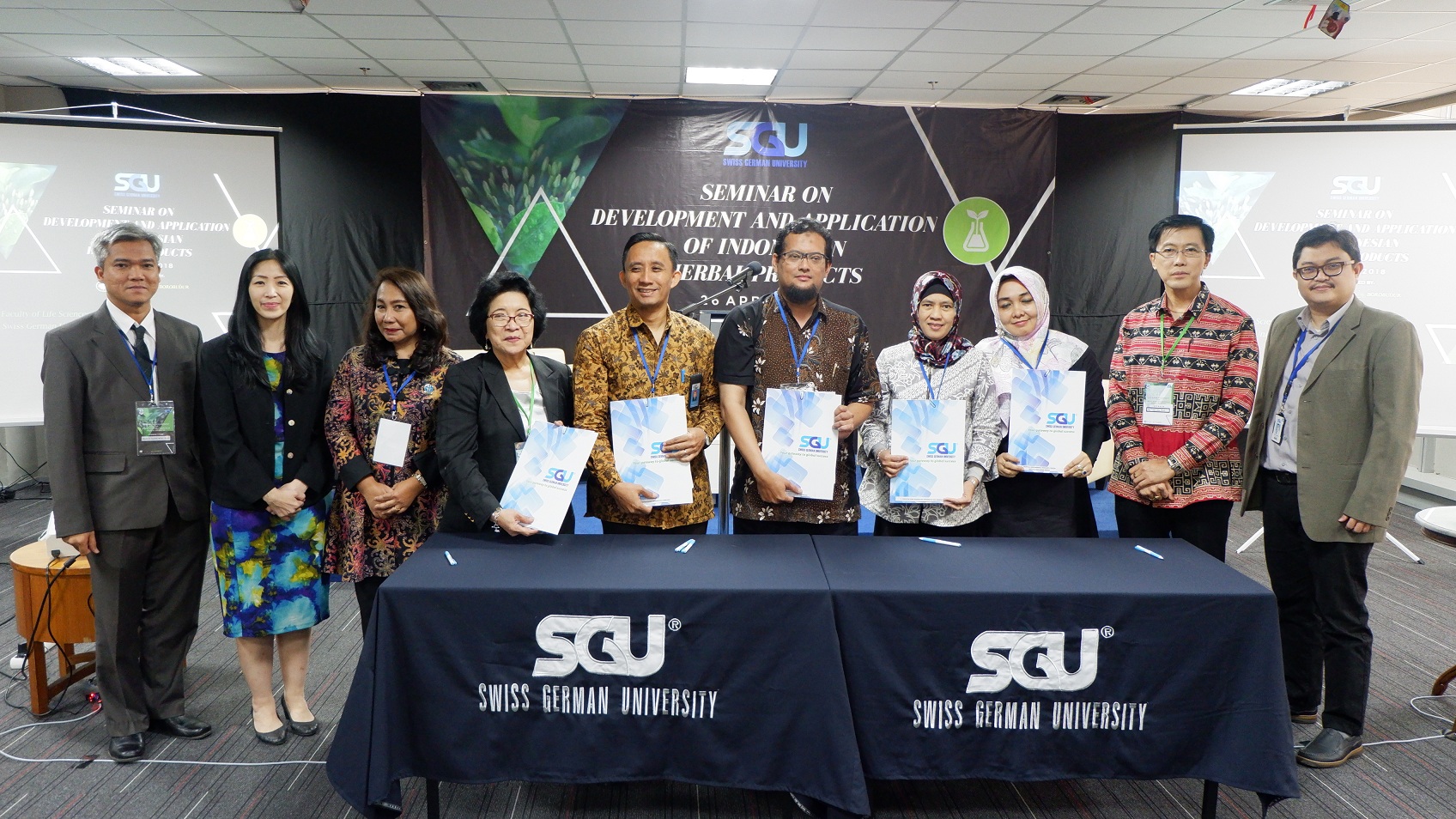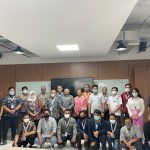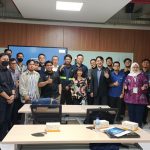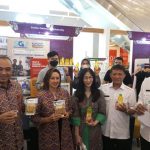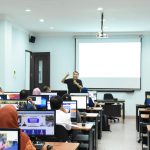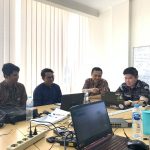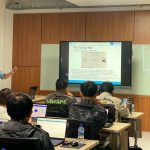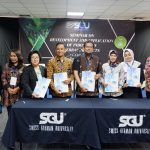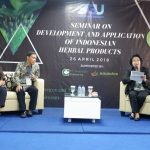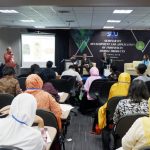Jakarta, 26 April 2018 – Indonesia is a nation that has a diversity of flora. There are more than 50,000 species of plants, 30,000 species of endemic plants, and around 6,000 species of which can be used for the development of medicines, cosmetics and functional foods. The availability of potential medicines from natural ingredients needs to be developed if Indonesia wants to become a superior nation in the field of medicine. If we refer to data from the Ministry of Health of the Republic of Indonesia in 2012 which states that 95% of medicinal ingredients circulating in Indonesia are foreign products, then this should have become a strong warning for this nation to pay attention to the pharmaceutical sector. The government and the private sector, including higher education institutions, need to work together to advance the pharmaceutical sector in Indonesia.
As a higher education institution that prioritizes research and community service, Swiss German University (SGU) held a Seminar on the Development and Application of Indonesian Herbal Products which aims to support government programs, especially the pharmaceutical sector, in modernizing herbal products and encouraging the Micro, Small and Medium Enterprises sector ( UMKM) Indonesian herbal products. The seminar also saw the signing of a memorandum of understanding between SGU and the Tropical Biopharmaca Research Center IPB, the LIPI Chemical Research Center, the Faculty of Medicine, University of Lampung, and the Faculty of Health Sciences, Esa Unggul University for the establishment of the Indonesian Consortium for Extract Library Natural Materials which was the first attempt done in Indonesia.
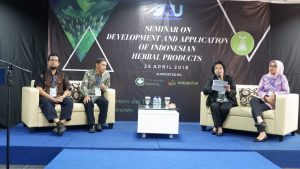
The seminar on the development and application of Indonesian herbal products and the signing of the memorandum of understanding for the establishment of this extract library was an initiative of one of the SGU lecturers, Kholis Abdurachim Audah, M.Sc, Ph.D, who is also the Deputy Director for Research, Institute for Research and Community Service (LPPM) SGU. “Modern medicines have professional treatment such as standardization, good manufacturing practices, systems and so on, while traditional medicines are not maximized and have not even been specially made, so they need to be handled and developed professionally, including in terms of testing, they must receive scientific testing. and clinical as modern medicine. So that traditional medicines are not underestimated and can be equated with modern medicines. If it is equalized, the herbal products produced by the Indonesian MSME sector will improve in quality and can compete with foreign products,” said Kholis.
The use of natural materials for medicinal purposes has been practiced by nations in the world such as China, India, Indonesia and other countries in the world. Even in the United States, about 50% of drugs that have been legalized are derived from natural ingredients or their derivatives. Therefore, it becomes an irony if we, as one of the richest countries in biodiversity, are unable to fully utilize this potential. “SGU’s initiative in establishing an extract library was also based on the lack of synergy between the government and the private sector in maximizing existing databases, but not integrating databases owned by one institution/company with others. The ultimate goal of establishing this extract library is to provide a large repository of medicinal ingredients to speed up the process of discovering new drugs,” said the Chancellor of SGU, Dr. err. nat. Filiana Santoso.
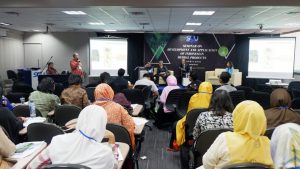
The herbal seminar which was held on the SGU campus at The Prominence Tower Alam Sutera was opened by the Chancellor of SGU, Dr. err. nat. Filiana Santoso and attended by the Deputy for Life Sciences of the Indonesian Institute of Sciences (LIPI), Prof. Dr. Enny Sudarmonowati, and the Director of Food Product Standardization at the Food and Drug Supervisory Agency (BPOM), Drs. Tepy Age, M.Phill., Ph.D.. In the keynote speech session, Prof. Enny and Drs. Tepy expressed his appreciation for SGU’s initiative and concern in holding seminars on the development and application of Indonesian herbal products and the consortium for collecting data on herbal plants in Indonesia.

